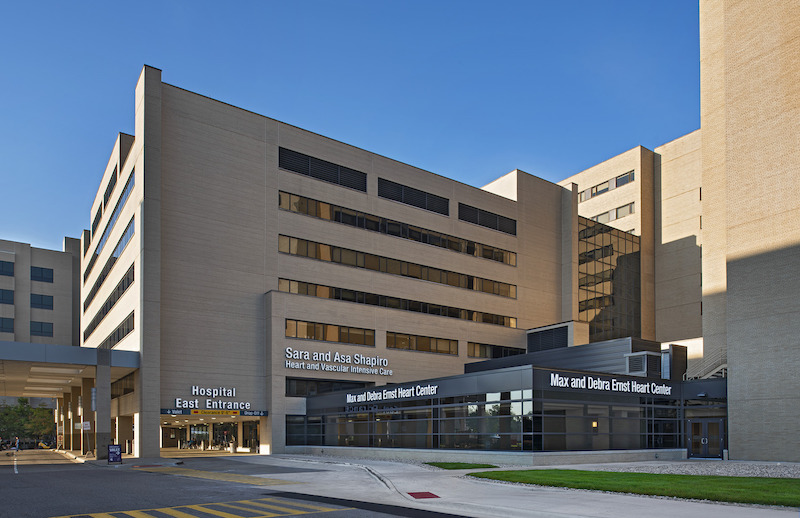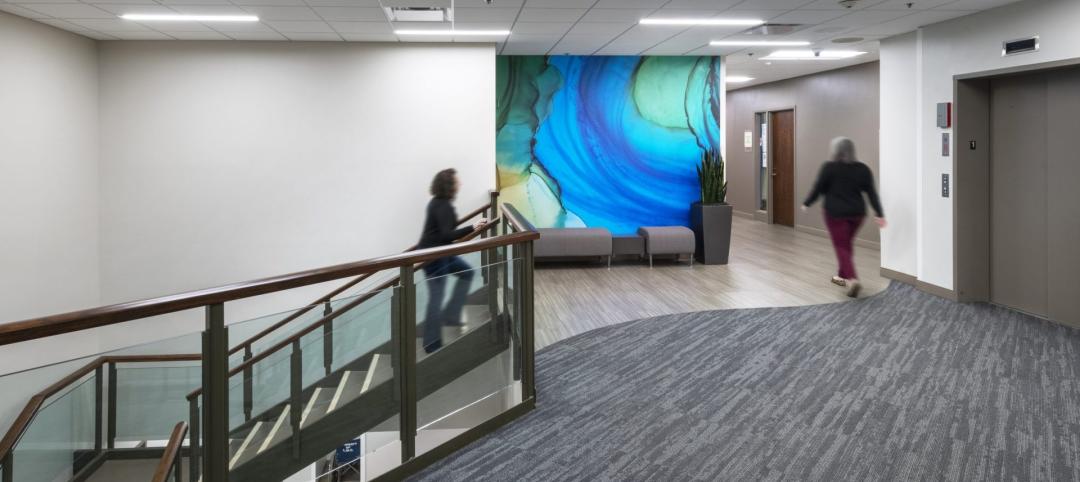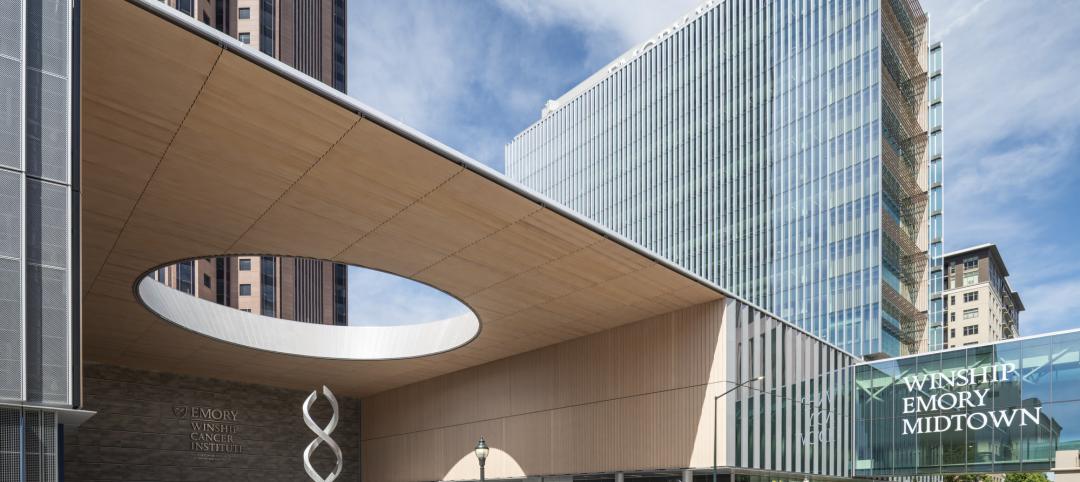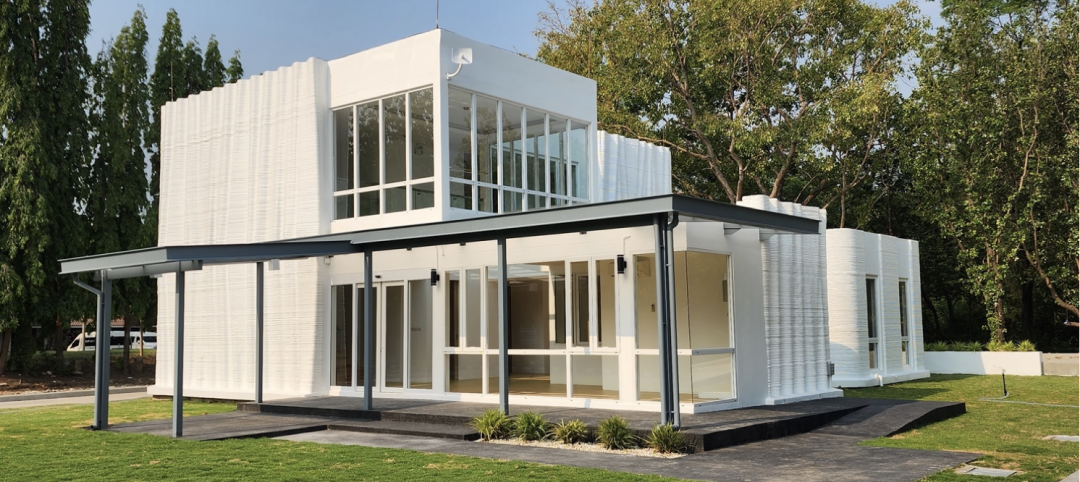This year, nearly 1.1 million Americas are expected to suffer “coronary events,” according to an American Heart Association report released earlier this year. The good news is that the number of deaths caused by cardiovascular heart failure or coronary heart disease has been falling steadily over the past several years.
That decline corresponds with the growth of heart failure clinics that have been popping up across the country, not only on academic campuses such as Stanford, Northwestern, Johns Hopkins, the University of Iowa and the University of Michigan, but also at major medical centers like Mayo Clinic (which has heart failure clinics in Arizona, Florida, and Minnesota), NYU|Langone Medical Center, and Cleveland Clinic.
Also see: 2019 Healthcare Giants Report: The ‘smart hospital’ is on the horizon
Add to that list the Max and Debra Ernst Heart Center, a $9 million, 14,000-sf facility that opened last month at Beaumont Hospital in Royal Oak, Mich. This addition, which is set up to treat 100 visitors per day, includes 12 patient care rooms, an echocardiogram room, a vascular room, a stress testing room, and two treatment rooms designed for outpatient medication infusion services.
The clinic is named after Max Ernst, the former Arbor Drugs COO, and his wife, who last year donated $5 million to the construction of the new heart failure center.
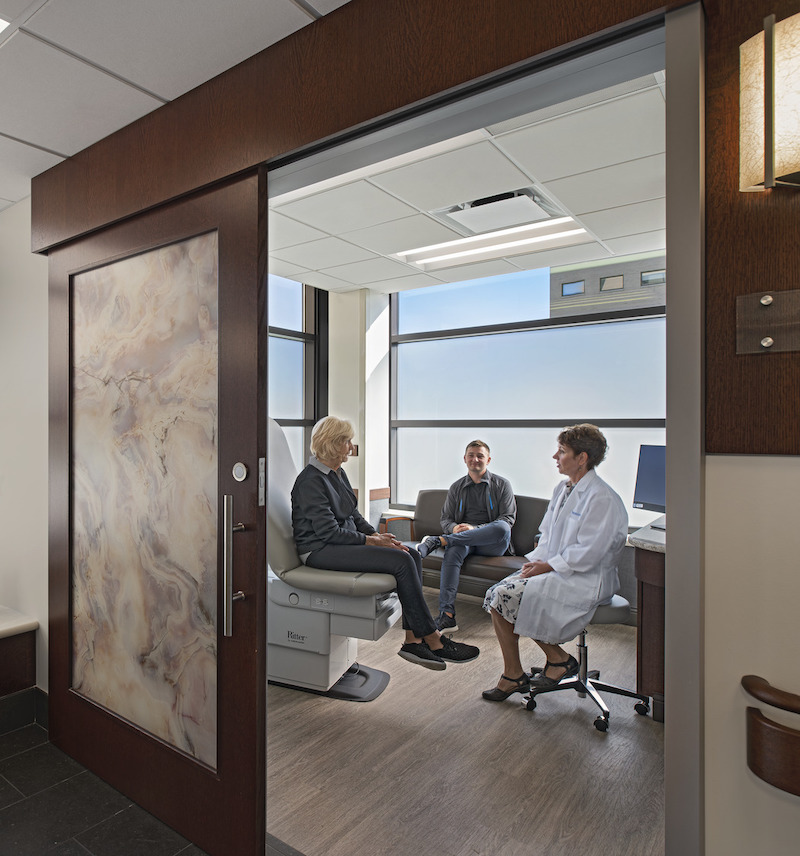 The clinic, with 12 patient rooms, is set up to treat up to 100 visitors per day.
The clinic, with 12 patient rooms, is set up to treat up to 100 visitors per day.
David Jaeger, Principal, Healthcare Studio Leader, Harley EIllis Devereaux (HED), this project’s primary design architect, talked about the “scalability” of the clinics for treating heart failure. “That’s been the case for Beaumont for many years,” adding that the new clinic is about expansion and branding.
He says his firm has had a “longstanding relationship” with Beaumont, dating back to 1997. HED has also done a number of heart centers for other clients; Jaeger says this has become something of a specialty for the firm. On the Beaumont project, HED was also the SE, ME, EE, and landscape architect. PEA Inc. was the CE. And Kasco Construction was the CM.
Heart failure clinics: More than a heart hospital
The goal of heart failure clinics, he explains, is to keep more patients out of emergency rooms. He made the point, however, that cardiology in general is not a growing service anymore for hospitals. “You rarely hear about open-heart surgery anymore,” he says, noting the clinicians are doing a much better job, and have better tools, to treat patients so they don’t need major surgery. “Cardiovascular clinicians have to think about population health in a different what to grow and expand their businesses.”
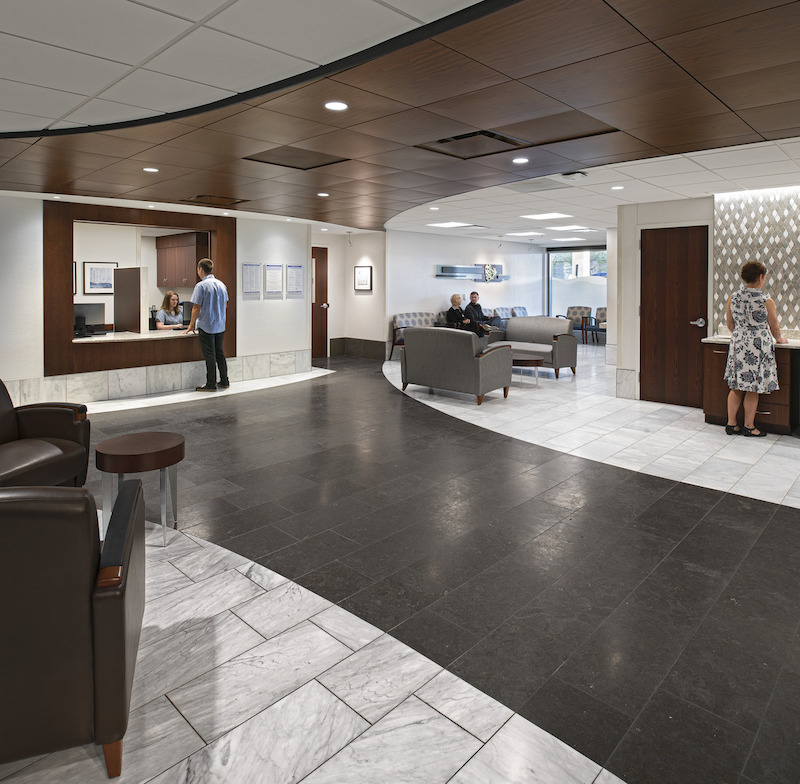 The clinic's glass facade lets in more natural light.
The clinic's glass facade lets in more natural light.
Jaeger says that this project was a challenge because the clinic needed to be wedged within five existing buildings on campus. It also needed to mediate radiation services below.
The precedent for heart failure clients that HED turned toward for its design, says Jaeger, was Duke University, which operates an advanced heart and lung failure clinic, a cardiology consult clinic, and a clinical research unit.
Beaumont is a 3 million-sf hospital, so patient access to the clinic was imperative. Located adjacent to the East Tower entrance of the hospital near the Ernst Cardiovascular Center that opened eight years ago, the clinic has its own entryway in close proximity to parking.
Jaeger also points out that, even though this campus’ buildings are mostly made from brick, HED specified a glass façade that wraps around the clinic addition, providing more natural light to patients and visitors.
Related Stories
Healthcare Facilities | Jun 27, 2023
A woman-led CM team manages the expansion and renovation of a woman-focused hospital in Nashville
This design-build project includes adding six floors for future growth.
Standards | Jun 26, 2023
New Wi-Fi standard boosts indoor navigation, tracking accuracy in buildings
The recently released Wi-Fi standard, IEEE 802.11az enables more refined and accurate indoor location capabilities. As technology manufacturers incorporate the new standard in various devices, it will enable buildings, including malls, arenas, and stadiums, to provide new wayfinding and tracking features.
Healthcare Facilities | Jun 14, 2023
Design considerations for behavioral health patients
The surrounding environment plays a huge role in the mental state of the occupants of a space, especially behavioral health patients whose perception of safety can be heightened. When patients do not feel comfortable in a space, the relationships between patients and therapists are negatively affected.
Engineers | Jun 14, 2023
The high cost of low maintenance
Walter P Moore’s Javier Balma, PhD, PE, SE, and Webb Wright, PE, identify the primary causes of engineering failures, define proactive versus reactive maintenance, recognize the reasons for deferred maintenance, and identify the financial and safety risks related to deferred maintenance.
Healthcare Facilities | Jun 5, 2023
Modernizing mental health care in emergency departments: Improving patient outcomes
In today’s mental health crisis, there is a widespread shortage of beds to handle certain populations. Patients may languish in the ED for hours or days before they can be linked to an appropriate inpatient program.
Healthcare Facilities | Jun 1, 2023
High-rise cancer center delivers new model for oncology care
Atlanta’s 17-story Winship Cancer Institute at Emory Midtown features two-story communities that organize cancer care into one-stop destinations. Designed by Skidmore, Owings & Merrill (SOM) and May Architecture, the facility includes comprehensive oncology facilities—including inpatient beds, surgical capacity, infusion treatment, outpatient clinics, diagnostic imaging, linear accelerators, and areas for wellness, rehabilitation, and clinical research.
Healthcare Facilities | May 19, 2023
A new behavioral health facility in California targets net zero energy
Shortly before Mental Health Awareness Month in May, development and construction firm Skanska announced the topping out of California’s first behavioral health facility—and the largest in the nation—to target net zero energy. Located in Redwood City, San Mateo County, Calif., the 77,610-sf Cordilleras Health System Replacement Project is slated for completion in late 2024.
3D Printing | May 12, 2023
World’s first 3D-printed medical center completed
3D construction printing reached new heights this week as the world’s first 3D-printed medical center was completed in Thailand.
Sustainability | May 11, 2023
Let's build toward a circular economy
Eric Corey Freed, Director of Sustainability, CannonDesign, discusses the values of well-designed, regenerative buildings.
Digital Twin | May 8, 2023
What AEC professionals should know about digital twins
A growing number of AEC firms and building owners are finding value in implementing digital twins to unify design, construction, and operational data.


